Queen Mary at COP28
COP28 is bringing the international community together in search of sustainable solutions to the climate crisis. At Queen Mary, we’re breaking new ground with our unique network of communities and partners.
Queen Mary is sending a team of experts to COP28 – who will be speaking and attending events and showcasing their unique research to influence policy on a range of topics.
Key events at COP28
War, Carbon and Infrastructure: Conflict and the Military Emissions Gap
Professor Benjamin Neimark
11:30AM to 13:00PM GMT+4
Zone B7, Building 88
(First Floor, Thematic Arena 3)
Technology, AI and Innovation for Transformative Climate Action in Sustainable Agri-food Systems
Dr Fernando Barrio
4:45PM to 6:15PM GMT+4
SE Room 7
Green Digital Skills, Digitalization and AI for Climate Action
Dr Fernando Barrio
6:00PM to 7:00PM GMT+4
Greek Pavilion, Blue Zone
Queen Mary experts attending COP28
Professor Benjamin Neimark
Professor in International Development and Political Ecology
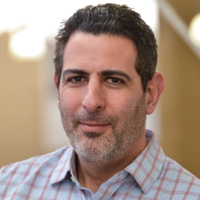 Benjamin is a human geographer and political ecologist (defined as the intersections of ecology and a broadly defined political economy) whose research focuses on politics of biological conservation and resource extraction, high-value commodity chains, ‘green’ precarious smallholder production, and agrarian change and development. He has a geographic focus on sub-Saharan Africa and Madagascar. His current research looks at the US military as a global climate actor and, more broadly, the environment footprints of the world’s militaries.
Benjamin is a human geographer and political ecologist (defined as the intersections of ecology and a broadly defined political economy) whose research focuses on politics of biological conservation and resource extraction, high-value commodity chains, ‘green’ precarious smallholder production, and agrarian change and development. He has a geographic focus on sub-Saharan Africa and Madagascar. His current research looks at the US military as a global climate actor and, more broadly, the environment footprints of the world’s militaries.
Professor Christophe Eizaguirre
Professor of Evolutionary and Conservation Genetics
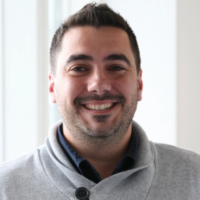 Chris has developed an interdisciplinary research program that focuses on protecting endangered populations or species. With NGOs, he has co-developed the "Turtle Project" which aims to monitor and protect sea turtles across West Africa using novel technology (drone molecular tools) with and for local communities.
Chris has developed an interdisciplinary research program that focuses on protecting endangered populations or species. With NGOs, he has co-developed the "Turtle Project" which aims to monitor and protect sea turtles across West Africa using novel technology (drone molecular tools) with and for local communities.
Professor Chris Griffiths
Professor of Primary Care
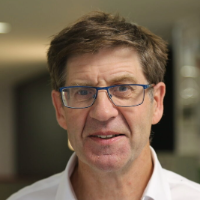 Chris Griffiths leads research programmes addressing air pollution and health effects, asthma and respiratory disease, infectious disease including tuberculosis, HIV and hepatitis, vitamin D biology and domestic violence. He has a published over 35 trials and meta-analyses of trials. He leads the NIHR-funded evaluation of the London Ultra Low Emission Zone.
Chris Griffiths leads research programmes addressing air pollution and health effects, asthma and respiratory disease, infectious disease including tuberculosis, HIV and hepatitis, vitamin D biology and domestic violence. He has a published over 35 trials and meta-analyses of trials. He leads the NIHR-funded evaluation of the London Ultra Low Emission Zone.
Dr Fernando Barrio
Reader in Sustainable Business Law
-200x200.jpg) The main topic that underlines Fernando's scholarship and public engagement experience is the global regulation of information technologies, intellectual property, human rights and their application to different industries and business, with emphasis on the impact on business sustainability and climate change. Currently, Fernando's focus rests on legal and policy issues of digital technologies, Artificial Intelligence and renewable energies applied to climate change adaptation and mitigation, in different regions, with projects pertaining to South East Asia, India and Sub-Saharan Africa.
The main topic that underlines Fernando's scholarship and public engagement experience is the global regulation of information technologies, intellectual property, human rights and their application to different industries and business, with emphasis on the impact on business sustainability and climate change. Currently, Fernando's focus rests on legal and policy issues of digital technologies, Artificial Intelligence and renewable energies applied to climate change adaptation and mitigation, in different regions, with projects pertaining to South East Asia, India and Sub-Saharan Africa.
Dr Franziska Arnold-Dwyer
Senior Lecturer in Insurance Law, Contract Law and Sustainability
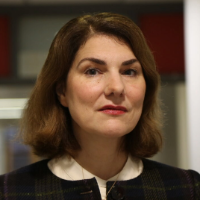 Franziska's research and engagement interests are in the intersection of insurance, climate change, sustainability, risk governance, law and regulation. She is working on sustainable insurance and finance solutions, including Net-Zero Aligned Insurance Products (that contribute to climate change mitigation) and Climate Resilient Development Bonds (that build resilience to physical climate risks and their financial impacts). Her research seeks to connect and engage different stakeholders, including the insurance industry, institutional and philanthropic investors, communities, consumers, small businesses, and (local) governments. She has a forthcoming book on 'Insurance, Climate Change and the Law' (Routledge, 2024).
Franziska's research and engagement interests are in the intersection of insurance, climate change, sustainability, risk governance, law and regulation. She is working on sustainable insurance and finance solutions, including Net-Zero Aligned Insurance Products (that contribute to climate change mitigation) and Climate Resilient Development Bonds (that build resilience to physical climate risks and their financial impacts). Her research seeks to connect and engage different stakeholders, including the insurance industry, institutional and philanthropic investors, communities, consumers, small businesses, and (local) governments. She has a forthcoming book on 'Insurance, Climate Change and the Law' (Routledge, 2024).
Dr Heather McMullen
Senior Lecturer
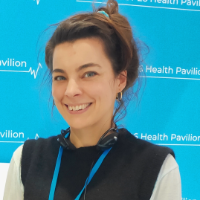 Heather's work explores the intersection of climate change and environmental crises, gender and sexual and reproductive health, rights and justice. She is interested in how these intersections are framed in global policy and advocacy but also how they are experienced by people in regards to their own health, agency and decision making. She has led on a partnership with the United
Heather's work explores the intersection of climate change and environmental crises, gender and sexual and reproductive health, rights and justice. She is interested in how these intersections are framed in global policy and advocacy but also how they are experienced by people in regards to their own health, agency and decision making. She has led on a partnership with the United
Nations Population Fund bringing evidence and advocacy to the intersection between climate change and SRHR for the past three years and has worked with numerous other civil society partners in this area including the International Planned Parenthood Federation and Sex Og Samfund. She is an active member of the Sexual and Reproductive Health and Rights and Climate Justice Coalition which builds power with over 70 civil society organisations towards climate just solutions that leave no one behind. Heather has also done work on reproductive decision making in relation to climate change, including as a visiting scholar at the University of Cambridge, Reproductive Sociology group in 2022.
Piratá Waurá
Associate Artist, People's Palace Projects
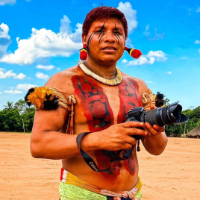 Piratá Waurá is an Indigenous historian, photographer, filmmaker of the Wauja people, and teacher at the Indigenous School of the Topepeweke village. Piratá is part of the AIT – Tulukai Indigenous Association), whose mission is the preservation of the Wauja culture, its territory, forest and natural resources through cultural, artistic, environmental and sustainable development projects. The Wauja are an Arawak-speaking group of around 700 individuals who live in the Xingu.
Piratá Waurá is an Indigenous historian, photographer, filmmaker of the Wauja people, and teacher at the Indigenous School of the Topepeweke village. Piratá is part of the AIT – Tulukai Indigenous Association), whose mission is the preservation of the Wauja culture, its territory, forest and natural resources through cultural, artistic, environmental and sustainable development projects. The Wauja are an Arawak-speaking group of around 700 individuals who live in the Xingu.
The Xingu is a protected Indigenous territory in the South Basin of the Brazilian Amazon rainforest of more than 2.6 million hectares and home to 16 Indigenous communities. One of the world’s most ethnically and linguistically diverse Indigenous territories, it is also the largest remaining island of tropical forest in the Brazilian Amazon’s arc of deforestation. The Xingu stands today as one of the main barriers to deforestation in the Amazon. Over the past decade, intensive farming, indiscriminate use of pesticides, the expansion of cattle, mining, land grabbing, deforestation and river alteration outside the territory have changed the regional hydroclimate and increased the frequency and intensity of droughts and forest fires.
Thiago Jesus
Head of Indigenous Exchange and Climate Action, People’s Palace Projects
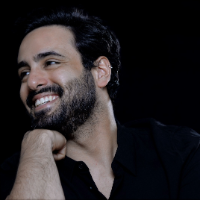 Thiago Jesus is a creative producer and researcher. With over a decade of experience managing cross-cultural initiatives and interdisciplinary research, Thiago is the Head of Indigenous Exchange and Climate Action at People’s Palace Projects. Since 2014, Thiago has been working closely with Indigenous people from the Xingu Territory - in the Brazilian Amazon’s "arc of deforestation"—leading an exchange programme for the preservation of indigenous cultural practices as a key factor in safeguarding these communities from the climate crisis. Thiago’s doctoral research at Queen Mary University of London, funded by the Arts and Humanities Research Council, explores climate change approaches by arts-focused organisations.
Thiago Jesus is a creative producer and researcher. With over a decade of experience managing cross-cultural initiatives and interdisciplinary research, Thiago is the Head of Indigenous Exchange and Climate Action at People’s Palace Projects. Since 2014, Thiago has been working closely with Indigenous people from the Xingu Territory - in the Brazilian Amazon’s "arc of deforestation"—leading an exchange programme for the preservation of indigenous cultural practices as a key factor in safeguarding these communities from the climate crisis. Thiago’s doctoral research at Queen Mary University of London, funded by the Arts and Humanities Research Council, explores climate change approaches by arts-focused organisations.